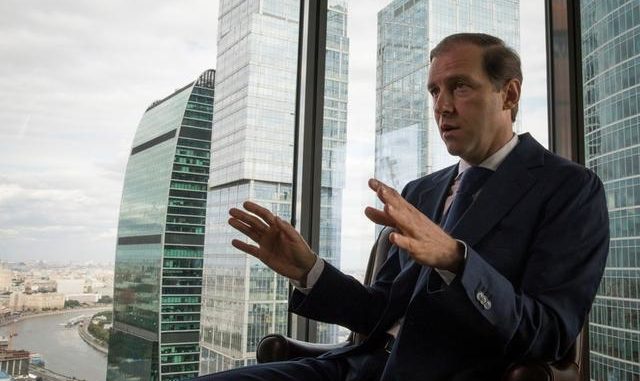
Russia plans to produce at least another 200 Sukhoi Superjet 100 aircraft, Industry Minister Denis Manturov told Reuters, despite a fatal crash that raised questions about the future of the country’s first new passenger jet since the Soviet Union.Russian Industry and Trade Minister Denis Manturov speaks during an interview with Reuters in his office in the Moscow International Business Centre, also known as “Moskva-City”, in Moscow, Russia July 5, 2019. Picture taken July 5, 2019. REUTERS/Shamil Zhumatov
An Aeroflot-operated Sukhoi Superjet, which had been flying from Moscow to the northern Russian city of Murmansk, caught fire on May 5 as it made a bumpy emergency landing at a Moscow airport, killing 41 people.
While Russian authorities have said there is no reason to ground the aircraft, there are signs of nervousness among passengers and operators.
Manturov, who travels on the Superjet for work trips, said demand for the aircraft remained strong and production plans were unchanged.
“The catastrophe did not affect our customers, either potential or those who have a contract already,” Manturov said in the interview cleared for publication on Monday.
He did not give a time frame for production of the 200 aircraft and did not say if buyers were lined up for all the planes, although he cited an order from Aeroflot for a further 100 jets, and from Thailand’s Thai Kom Airlines, which previously signed a contract for six Superjets.
ADVERTISEMENT
Russia spent $2 billion on developing and setting up production of the Superjet, which has been in operation since 2011.
A state-owned company has completed production of about 200 of the planes since then.
Current annual demand is for 25-30 aircraft compared with initial expectations of 50, due to tough competition with other producers, Manturov said.
CAR AND STEEL MARKETS GROWTH
Speaking about Russia’s car market, Manturov said that the ministry expected 2019 sales to remain flat year-on-year or grow up to 2% as a result of state support, which has totaled more than 20 billion rubles this year ($314 million).
The minister also added that Russia planned to sign a so called “special investment contract” with Chinese automaker Great Wall Motor Co. (601633.SS), which started production of Haval F7 models at a plant in Russia in June.
ADVERTISEMENT
Such contracts provide automakers with access to state subsidies and other measures of support in exchange for investment.
Manturov also said that he expected Russia’s 2019 domestic steel demand to grow 1% compared with 2% in 2018.
Reporting by Gleb Stolyarov and Olesya Astakhova; writing by Polina Devitt; Editing by Kirsten Donovan
MOSCOW (Reuters) –
